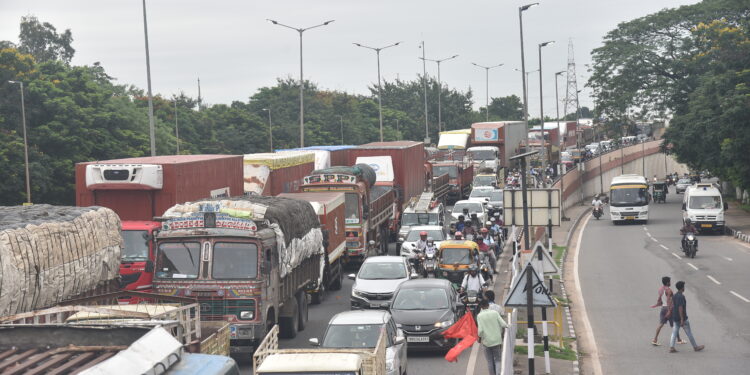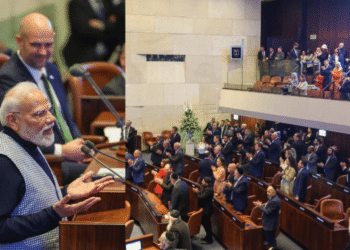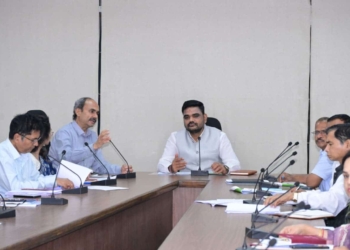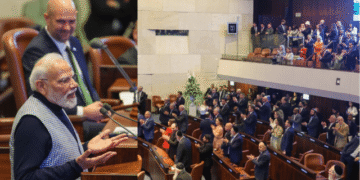Odisha is reeling under the combined impact of a statewide drivers’ strike and a nationwide Bharat Bandh, which have brought public transportation to a standstill and raised fears of an impending fuel crisis.
The protests, now in their second day, have disrupted normal life, particularly in the twin cities of Bhubaneswar and Cuttack, where commuters are stranded, and essential services face significant challenges.
The All Odisha Drivers’ Association, led by President Prashant Menduli, initiated the indefinite strike after failed negotiations with the state government. The drivers are demanding a comprehensive Driver Protection Law, inclusion of auto-rickshaw drivers in the driver category, declaration of September 1 as Drivers’ Day, pension provisions, construction of rest areas and toilets every 100 kilometres, and the removal of police authority to conduct vehicle checks. Despite presenting these demands a month ago through a press conference, the association claims the government has ignored their pleas, prompting the escalation of the agitation.
The Bharat Bandh, called by a coalition of 10 central trade unions and farmers’ organisations representing over 25 crore workers, has amplified the chaos. The bandh protests against four new labour codes, which unions argue undermine workers’ rights, extend working hours, shield employers from penalties, and jeopardise job security and fair wages. Sectors such as banking, postal services, mining, manufacturing, and transportation have been severely affected, with protests and road blockades reported across Odisha.
In Bhubaneswar, key locations like Master Canteen Square, Vani Vihar, Rajpath, and Jaydev Vihar Overbridge witnessed demonstrations and road blockades, while Cuttack saw similar disruptions. Private bus and truck owners’ associations have extended their support to the drivers’ strike, resulting in a near-complete halt of bus services from major terminals like Cuttack’s Netaji Bus Terminal and Bhubaneswar’s Baramunda Bus Terminal. Only ambulances and school buses have been exempted, leaving thousands of passengers stranded and forcing many to seek costly alternatives or cancel travel plans.
The strike has also disrupted fuel supply chains, with no petrol or diesel tankers reaching fuel stations for two days. Sanjay Lath, President of the Utkal Petroleum Dealers’ Association, warned that if tankers do not resume operations by Thursday, fuel shortages could cripple the state. Fuel depots in Paradip, Balasore, Jatni, and Jharsuguda remain affected, and many petrol pumps in Bhubaneswar were closed during the morning hours due to the bandh. Evening hours saw heavy crowding at fuel stations as rumours of shortages sparked panic among residents.
The impact of the protests is most pronounced in urban centres, where commuters, daily wage workers, and businesses reliant on transportation are bearing the brunt. At Bhubaneswar Railway Station and government bus stands, stranded passengers expressed frustration over the lack of transportation options. Meanwhile, limited government bus services in some areas have been insufficient to meet the demand.
The drivers’ association has vowed to continue the strike until their demands are met, accusing the government of delaying tactics and neglecting their legitimate concerns. The ongoing agitation, coupled with the Bharat Bandh, has created a state of near-paralysis in Odisha, with no immediate resolution in sight. As the protests continue, the public braces for further disruptions, including potential fuel shortages that could exacerbate the crisis.


































